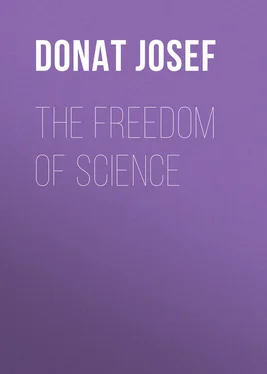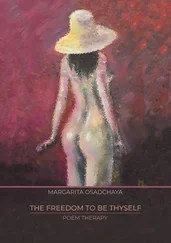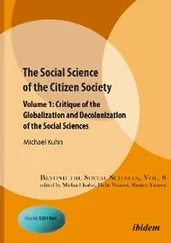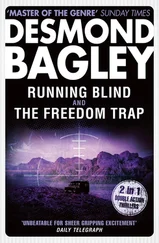Josef Donat - The Freedom of Science
Здесь есть возможность читать онлайн «Josef Donat - The Freedom of Science» — ознакомительный отрывок электронной книги совершенно бесплатно, а после прочтения отрывка купить полную версию. В некоторых случаях можно слушать аудио, скачать через торрент в формате fb2 и присутствует краткое содержание. Жанр: foreign_antique, foreign_prose, на английском языке. Описание произведения, (предисловие) а так же отзывы посетителей доступны на портале библиотеки ЛибКат.
- Название:The Freedom of Science
- Автор:
- Жанр:
- Год:неизвестен
- ISBN:нет данных
- Рейтинг книги:4 / 5. Голосов: 1
-
Избранное:Добавить в избранное
- Отзывы:
-
Ваша оценка:
- 80
- 1
- 2
- 3
- 4
- 5
The Freedom of Science: краткое содержание, описание и аннотация
Предлагаем к чтению аннотацию, описание, краткое содержание или предисловие (зависит от того, что написал сам автор книги «The Freedom of Science»). Если вы не нашли необходимую информацию о книге — напишите в комментариях, мы постараемся отыскать её.
The Freedom of Science — читать онлайн ознакомительный отрывок
Ниже представлен текст книги, разбитый по страницам. Система сохранения места последней прочитанной страницы, позволяет с удобством читать онлайн бесплатно книгу «The Freedom of Science», без необходимости каждый раз заново искать на чём Вы остановились. Поставьте закладку, и сможете в любой момент перейти на страницу, на которой закончили чтение.
Интервал:
Закладка:
When in 1892 the battle for a new school law was raging in Prussia, Caprivi , the Chancellor of the Empire, said: “It is here question of a contrast between Christianity and atheism. Essential to man is his relation to God.” Scarcely had these words been uttered when a champion of modern thought, Prof. Fr. Jodl , took up his pen and wrote: “No sharper contrast with the convictions of the modern world is imaginable than that expressed by the words of the imperial Chancellor, ‘essential to man is his relation to God.’ To this sentence, which might be expected in a speech of Cromwell, or in a papal encyclical, rather than from a statesman of modern Germany, liberalism must with all possible emphasis oppose this other sentence: What determines the real worth of a man, is, first and last, his relation to humanity” (Moral, Religion und Schule, 1892, 14f.). Diis extinctis successit humanitas . We shall not deny that the modern spirit is a complicated structure: but neither can any one deny that its chief characteristic is the humanitarian view, with its emancipation from God, its decided emphasis of the things of this world, and its boundless overestimation of man.
An attentive observer of these days, should he chance to come from an old, Catholic town, and saunter with observant eye through one of our great modern cities, particularly a Protestant one, would behold a vivid realization of this modern view of the world. The most prominent feature of the Catholic town of old was the House of God. It towered high above the city, its spires reached heavenward; the houses of the faithful clung around the House of God like chicks about the mother hen. The mere sight told the beholder that here dwelt a people whose thoughts were directed towards the other world; over their lives ruled the sacred peace of eternity.
But here all is different. Here the most prominent feature is no longer the House of God; worldly edifices have usurped its place; railroad depots, barracks, city-hall and court-house dominate the city. The state house bears no longer on its front the Christian motto, Nisi Dominus custodierit (“Unless the Lord keep the city he watcheth in vain that keepeth it”). It would be considered a degradation should the state base its existence upon religion. Should, then, the observer enter the legislature he would learn the modern principles of state wisdom. The state as such has no relation to religion; the principle is the separation of state and Church. In the public squares he beholds mighty monuments, erected, not to religious heroes and leaders, as perhaps of old, but to great men of the world, champions of national progress. At their feet lie wreaths of homage. They have brought modern humanity to its full stature, maturity, and self-consciousness. Here it is Man who is standing everywhere in the foreground. “It is I,” says he, “that lives here. Here I have pitched my tent, from this earth come all my joys, and this sun is shining upon my sorrows.”
Our observer, wandering about, finds everywhere magnificent state-schools, scientific institutes, splendid colleges and universities. In years gone by a cross or a word of divine wisdom was probably found here somewhere. It is seen no more. Often it would seem that we can almost hear the words: “We will not have this One rule over us.” Here a new race is being reared, which no longer follows blindly the “old tradition,” it believes in its own self and its own reason: culture and science take the place of the old religion. He finds but few churches; and where found they are mostly overshadowed by great palaces, and – mostly empty. The modern man passes them by. He has no longer any understanding for the truths of the Christian religion. It fails to satisfy him because it does not appeal to modern ways of thinking and feeling, because it does not symbolize the humanitarian creed. His desire is no longer for Heaven; his aspirations are earthward. “The life beyond concerns me little: my joys come from this world.” Contemplating modern civilization he exclaims, with the king of Babylon: “Is not this the great Babylon, which I have built to be the seat of the kingdom, by the strength of my power, and in the glory of my excellence?” (Dan. iv. 27). The doctrine of a nature corrupted by original sin, of a darkened intellect that needs divine revelation, of a weakened will that needs strength from above, of sin that demands atonement, – all this has become meaningless to him, it offends his higher sentiments, his human dignity. He has no longer any understanding for a Saviour of the world, in whom alone salvation is to be sought, much less for a Cross. This sign of redemption, as a certain herald of modern thought remarked, weighs like a mountain upon the mind of our day. He has no longer any understanding for the saving institution of the Church, by whom he should be led: she is to him an institution of intellectual serfdom. He makes his own religion, free from dogma, just as his individuality desires, just as he “lives” it.
Should our observer, while visiting the Protestant city, make a final visit to its university, he will find there the thoughts, which hitherto he had but vaguely felt, clothed in scientific language. There they meet his gaze, defined sharply on the pedestal of Research as the Modern Philosophy, protected, often exclusively privileged, by the state license of teaching. It is the modern scientific view of the world, the only one that men of modern times may hold. From here it is to find its way to wider circles.
“Man,” we are told by a pupil of Feuerbach , in accord with his master's teaching, “man is man's god. And only by the enthronement of this human god can the super-human and ultra-human God be made superfluous. What Christianity was and claimed to be in times gone by, that now is claimed by humanity.” “The being which man in religion and theology reveres,” continues Jodl with Feuerbach , “is his own being, the essence of his own desires and ideals. If you eliminate from this conception all that is mere fancy and contrary to the laws of nature, what is left is a cultural ideal of civilization, a refined humanity, which will become a reality by its own independent strength and labour” ( Ludwig Feuerbach , 1904, 111 f., 194). “The greatest achievement of modern times,” says another panegyrist of emancipated humanity, “is the deliverance from the traditional bondage of a direct revelation… Neither revelation nor redemption approach man from without; he is bound rather to struggle for his perfection by his own strength. What he knows about God, nature, and his own self, is of his own doing. He is in reality ‘the measure of all things, of those that are, and why they are; of those that are not, and why they are not.’Of his dignity as an image of God, he has therefore not lost anything; on the contrary, he has come nearer to his resemblance to God, his highest end, by his consciousness of being self-existent and of having the destiny to produce everything of himself; from a receptive being he has become a spontaneous one; he has at last come to a clear knowledge of his own real importance and destiny” ( Spicker , Der Kampf zweier Weltanschauungen, 1898, 134).
Hence “not to make man religious,” to quote again the above-mentioned exponent of modern wisdom of life, “but to educate, to promote culture among all classes and professions, this is the task of the present time.” “Religion cannot therefore be the watchword of a progressive humanity; neither the religion of the past nor the religion that is to be looked for in the future, but ethics” ( Jodl , ibid., 108, 112). Ethics, to be sure, the fundamental principles of which are not the commandments of God, by the keeping of which we are to reach our eternal happiness, but human laws, which are observed for the sake of man. “Morality and religion,” we are told, “shall no longer give us a narrow ladder on which we, each one for himself, climb to the heights of the other world; we are vaulting a majestic dome above this earth under which the generations come and go, succeeding each other in continuous procession… The day will come when the rays of thought which are now dawning upon the highest and freest mountain-tops will bring the light of noonday down to mankind.” Woe to us, if from these high mountain-tops, where the bare rocks no longer take life and fecundity from the heavens, the sad desert of estrangement from God should extend into the fresh green of the valleys!
Читать дальшеИнтервал:
Закладка:
Похожие книги на «The Freedom of Science»
Представляем Вашему вниманию похожие книги на «The Freedom of Science» списком для выбора. Мы отобрали схожую по названию и смыслу литературу в надежде предоставить читателям больше вариантов отыскать новые, интересные, ещё непрочитанные произведения.
Обсуждение, отзывы о книге «The Freedom of Science» и просто собственные мнения читателей. Оставьте ваши комментарии, напишите, что Вы думаете о произведении, его смысле или главных героях. Укажите что конкретно понравилось, а что нет, и почему Вы так считаете.












